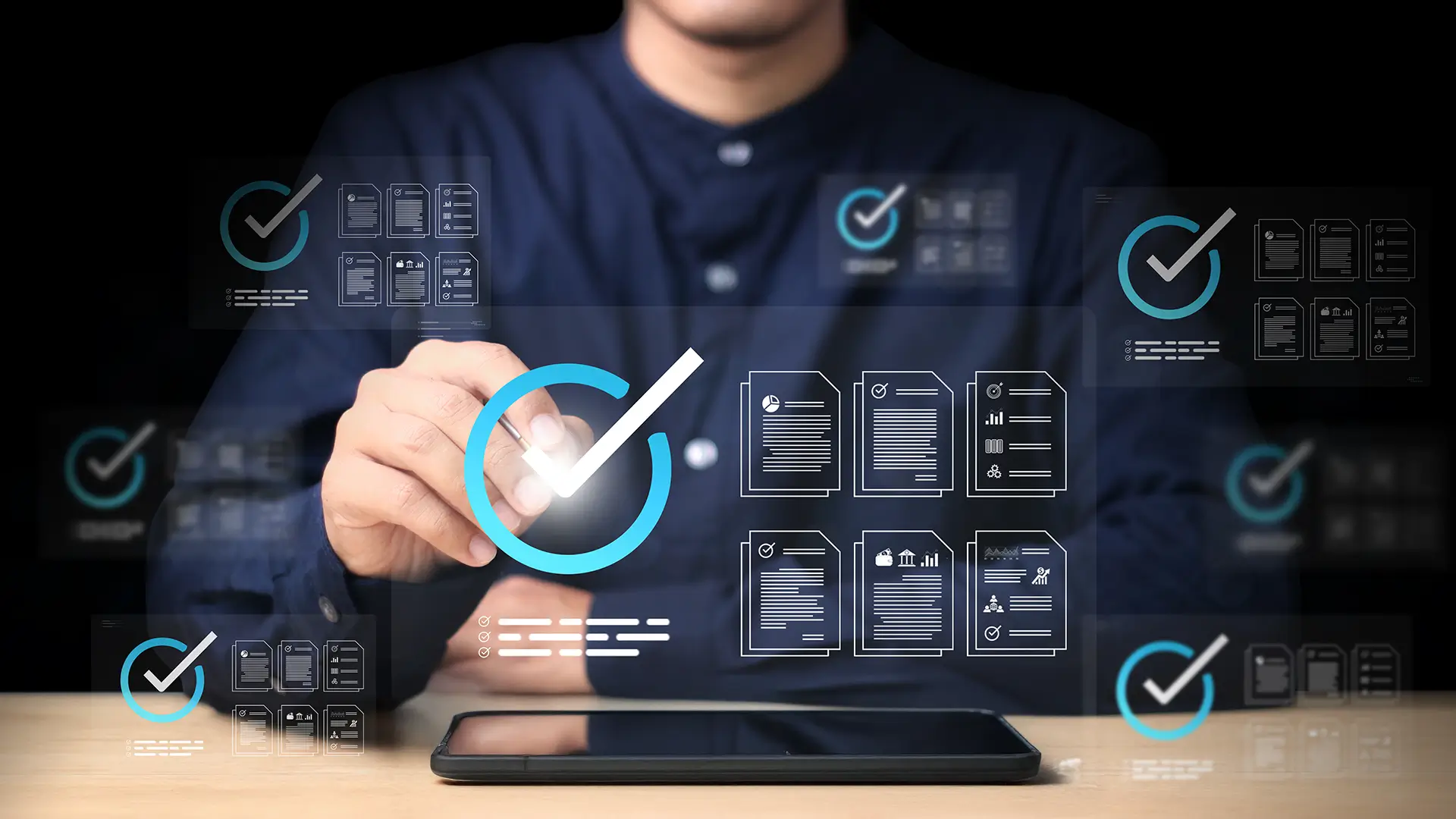Smart TVs are adapting to the expectations for performance and quality. Consumers now demand a seamless experience on their LG webOS TVs, with quick responses, intuitive interfaces, and minimal bugs.
Testing these smart TVs has become crucial to ensure they meet user expectations. Manual testing, however, is time-consuming and lacks scalability. This is where automation testing comes into play, and Appium, a leading open-source tool, is becoming a preferred choice for LG WebOS TV testing.
This blog will explore the automation approach to LG WebOS TV testing with Appium, emphasizing its efficiency in testing. Additionally, we'll delve into smart TV testing strategies and best practices for debugging LG TV software issues.
Why Automated Testing is Essential for Smart TVs
With the increase in complexity and features of smart TVs, manual testing alone cannot handle the extensive testing requirements. Smart TV testing ensures that all functionalities, from apps to operating systems, work seamlessly. This is even more critical for manufacturers like LG as users expect top-notch performance from their LG WebOS TV devices.
Automating these tests provides several benefits:
- Speed and Efficiency: Automated tests run faster, which is essential for testing different versions and updates.
- Coverage: With automation, more features, platforms, and functionalities can be tested simultaneously.
- Consistency: Automated tests eliminate human errors and ensure the same set of tests are executed with each release.
For LG TV testing, automation helps ensure that apps behave consistently across different TV models, firmware updates, and network conditions.
Appium: A Powerful Tool for LG WebOS TV Testing
Appium is a versatile, open-source automation tool widely used for mobile and smart TV testing. Appium’s design allows it to automate not just mobile applications but also the functionality and performance of LG WebOS TVs.
As a result, testers can ensure that apps work seamlessly on LG WebOS TV and meet the high-performance standards expected by users. Let's explain why Appium is the tool for automating LG TV testing.
1. Cross-Platform Testing Capability
Appium allows you to write test scripts adapted to run across different platforms, such as Android, iOS, and LG WebOS TV, with some adjustments needed for platform-specific elements and behaviors.
Using a single tool for multiple platforms saves time and effort, streamlines test case management and ensures consistency in test results.
2. Seamless Automation for LG WebOS TV Testing
Appium excels in creating automated tests for LG WebOS TV by simulating real-world scenarios that users might encounter while interacting with the TV. Whether launching apps, navigating through menus, or testing remote control functions, Appium can automate various tasks on LG TVs.
LG WebOS TV testing with Appium also allows for extensive functional and performance testing, from testing app responsiveness to measuring how well the system handles multiple apps running simultaneously. This level of automation ensures that bugs and performance bottlenecks are identified early.
3. Open-Source and Free
Appium is open-source, making it a cost-effective solution for organizations looking to scale their testing efforts. Since the tool is free, it is accessible to teams of all sizes, from startups to enterprise-level companies.
Additionally, Appium's large and active community contributes to its development, making it a continually evolving tool with extensive documentation, tutorials, and support from industry experts.
4. Integration with CI/CD Pipelines
As modern development teams move towards CI/CD practices, Appium’s ability to integrate seamlessly into these pipelines is another key benefit. By embedding LG TV testing into your CI/CD workflow, you can ensure that automated tests are run with every code update, providing instant feedback on how the changes impact the LG WebOS TV platform.
This continuous testing model helps identify bugs, performance issues, or compatibility problems early in the development cycle, reducing the risk of costly late-stage defects. For LG WebOS TV testing, the ability to rapidly iterate and receive feedback is crucial to delivering high-quality user experiences.
5. Comprehensive Debugging and Troubleshooting
When testing apps or firmware for LG WebOS TV, bugs or performance issues can arise that must be addressed quickly and efficiently. Appium offers excellent debugging capabilities, which makes it easy for testers and developers to debug LG TV applications. Using features such as Appium’s inspector, log collection, and step-by-step execution, testers can pinpoint the root cause of issues and resolve them swiftly.
Whether you’re testing UI functionality or app performance, Appium’s debugging features are essential for troubleshooting issues that could negatively impact user experiences on LG TVs.
The Automation Approach for LG WebOS TV Testing with Appium
As smart TVs become more advanced, delivering high-quality applications and features for platforms like LG WebOS TV requires comprehensive testing. Manual testing for such platforms is tedious and prone to human error. Automating LG WebOS TV testing with Appium offers a solution that enables testers to run repetitive tasks efficiently and covers various scenarios and device models.
This approach to LG TV testing involves several key steps, from setting up Appium to debugging and maintaining test scripts over time. Here’s a deeper dive into how automation for LG WebOS TV testing with Appium is structured:
1. Setting up Appium for LG WebOS TV
The first step to automating LG TV testing is configuring Appium for the WebOS environment. Since Appium is a cross-platform, open-source tool, it supports mobile, web, and smart TV platform testing, making it an excellent choice for LG WebOS TV testing. The process of setting up Appium involves:
- Installing Appium Server: Appium can be installed via Node.js and needs to be configured with the necessary drivers to support smart TV testing.
- Configuring WebOS Drivers: To interface with an LG WebOS TV, specific drivers must be installed to allow communication between Appium and the TV. These drivers enable testers to control the TV while interacting with a mobile device.
- Setting up Device Farm: Since LG TV testing needs to cover multiple models and versions of WebOS, having access to a device farm or cloud-based infrastructure (such as HeadSpin's real-device cloud) is crucial for ensuring compatibility across different devices.
Once Appium is configured for LG WebOS TV, testers can begin writing test scripts tailored for TV applications.
2. Running Tests with Appium
With Appium set up and test scenarios designed, the next step is executing the tests. One of the most significant advantages of automated LG WebOS TV testing with Appium is the ability to run parallel tests across multiple platforms. This significantly reduces testing time compared to sequential manual testing.
Automated testing scripts can be executed on various LG WebOS TV models to test for different functionalities, such as:
- UI Navigation: Ensure the TV responds correctly to user inputs via the remote control or voice commands.
- App Performance: Run tests to assess apps' performance regarding load time, response time, and general UI/UX interaction.
- Content Streaming: Test how the TV handles different video resolutions, content buffering, and playback across different streaming services.
Using Appium’s automation features, you can schedule and continuously run tests, ensuring every new release or update is rigorously tested.
3. Handling Device-Specific Challenges
Unlike mobile or web applications, testing smart TVs comes with unique challenges:
- Remote Control Simulation: Unlike mobile devices, smart TVs like the LG WebOS TV primarily rely on remote controls for navigation. Simulating these remote control interactions in Appium requires creating custom scripts that account for different key presses and their effects on the TV’s interface.
- Screen Resolutions: LG TVs come in different screen sizes and resolutions, and testing needs to ensure that apps render correctly across all of them. Automated tests should check for UI consistency on screens ranging from 32-inch to 75-inch displays.
Appium helps mitigate these challenges by allowing testers to create flexible test cases that adapt to different devices and remote control inputs. This ensures that LG WebOS TV testing is thorough and consistent.
4. Maintaining and Updating Tests
Once the initial tests are set up, the next step is to maintain and update them as the LG WebOS TV and its applications evolve. Regular firmware updates, new features, and app updates require automated test scripts to be reviewed and updated to accommodate these changes.
- Adapting to Firmware Updates: Each time a new WebOS firmware update is released, the automated tests should be updated to ensure the apps continue to perform well.
- Revising Test Cases: As new features or updates are introduced, test cases should be updated or created to cover these new functionalities.
Automated tests offer a scalable, repeatable way to handle ongoing LG TV testing, ensuring continuous delivery of quality features and apps on the platform.
Read: How to Automate App Testing on Amazon Fire TV Using Appium-Python
Challenges in LG WebOS TV Testing
While automation can significantly enhance LG WebOS TV testing, there are still challenges to address:
- Device Compatibility: Ensuring compatibility across all devices can be challenging with various LG TV models.
- Complex User Interactions: Smart TVs have unique interactions, such as using a remote control, which may not be easy to automate.
- Firmware Updates: Frequent updates can sometimes disrupt automated test scripts, requiring maintenance and adjustment.
How HeadSpin Supports Appium for LG WebOS TV Testing
HeadSpin offers a robust, cloud-based testing infrastructure to enhance LG WebOS TV testing with Appium. As smart TVs become more complex, ensuring thorough and efficient testing across different devices, operating systems, and network conditions becomes crucial. HeadSpin addresses these challenges with their solution for automated testing on real LG WebOS devices.
Here’s how HeadSpin optimizes LG WebOS TV testing with Appium:
1. Access to Real Devices for Accurate Testing
One significant advantage of using HeadSpin for LG WebOS TV testing is its ability to access real, remote LG WebOS TVs. This ensures that your test results reflect real-world conditions, avoiding the limitations of emulators or simulators. Whether you're testing apps, firmware, or UI functionalities, HeadSpin enables you to test on actual devices, ensuring your results are accurate and reliable.
2. Scalable Automation Testing
HeadSpin’s platform effortlessly scales LG TV testing. Teams can run tests simultaneously on multiple devices by integrating Appium with HeadSpin’s cloud-based infrastructure. This helps accelerate the testing process and provides faster feedback loops for development teams.
3. Advanced Debugging Capabilities
Debugging LG TV apps can be challenging, but HeadSpin simplifies this by offering advanced debugging tools integrated with the Appium framework. When testing with HeadSpin, testers can gain deep insights into app performance and behavior. The platform provides detailed logs, screenshots, and session recordings, allowing teams to investigate and resolve issues efficiently.
4. Performance Monitoring
Beyond functional testing, performance testing is a crucial component of smart TV testing. Apps on LG WebOS TVs must be responsive and smooth, especially when streaming high-definition content or interacting with various smart features. HeadSpin offers robust performance monitoring tools to ensure that your apps meet the high standards expected by users.
5. Seamless Integration with Appium
HeadSpin’s platform is built to integrate seamlessly with Appium, making it easy to set up and run automated tests for LG WebOS TVs. Whether working with existing Appium scripts or developing new ones, HeadSpin ensures smooth integration, allowing for continuous and reliable test execution.
Conclusion
Automating LG WebOS TV testing with Appium brings numerous benefits, from increased testing speed to consistent performance checks across different devices. As smart TVs become an integral part of households, ensuring their quality and reliability through automation is essential. Appium, combined with HeadSpin’s robust testing infrastructure, provides a comprehensive solution for LG TV testing, allowing teams to scale their testing efforts while ensuring superior user experiences.
FAQs
Q1. What challenges might occur while automating smart TV tests?
Ans: Some common challenges include remote control simulations, handling various firmware versions, and ensuring compatibility across multiple TV models.
Q2. Why is debugging important in LG TV testing?
Ans: Debugging helps identify and fix bugs or performance issues before launching the app to users, ensuring a smooth and reliable experience on LG WebOS TVs.
Q3. Can Appium be used to test all smart TV brands?
Ans: Yes, Appium can be used for various smart TV platforms, including LG WebOS, Android TV, and others, provided the necessary drivers and configurations are in place.



























.png)


















-1280X720-Final-2.jpg)






